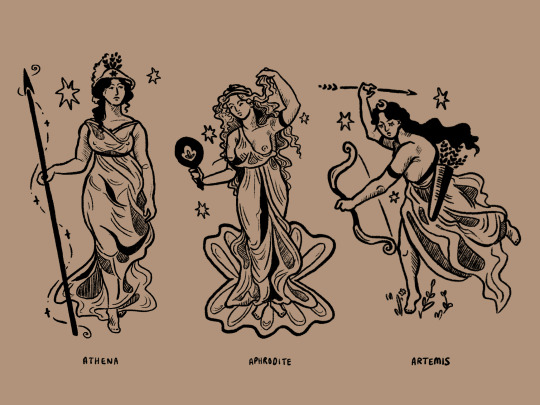This is my sideblog dedicated to Apollo and my faith. Hellenic Pagan. I'm in my mid 20s, and love learning about astrology and religion.
Don't wanna be here? Send us removal request.
Photo

Amor und Psyche by Gustav Seidel (19th Century)
2K notes
·
View notes
Text
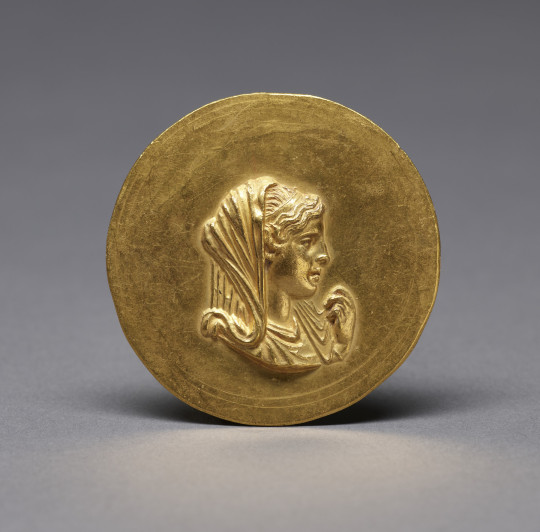

~ Medallion with Olympias.
Date: ca. A.D. 215-243
Period: Imperial Roman
Medium: Gold
1K notes
·
View notes
Photo
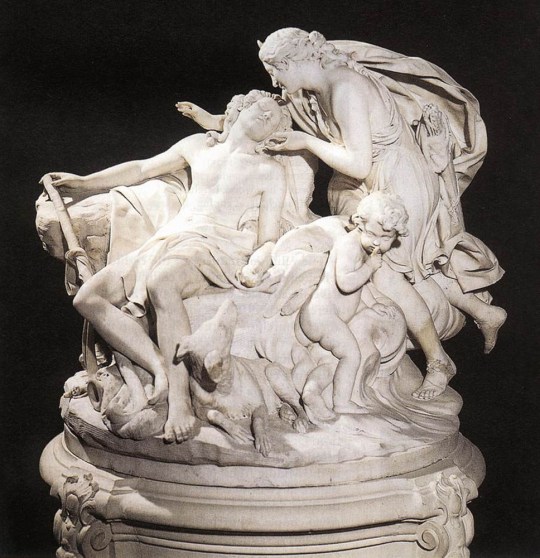
Diana and Endymion by René-Michel Slodtz (1740)
1K notes
·
View notes
Text
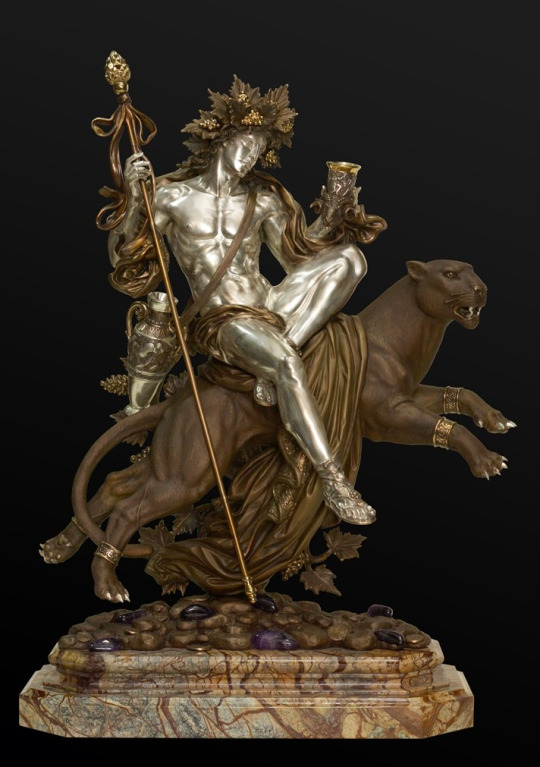
Bronze sculpture of Dionysus. Materials: bronze, silvering, gilding. Base made of marble. The product contains natural amethysts.
4K notes
·
View notes
Text
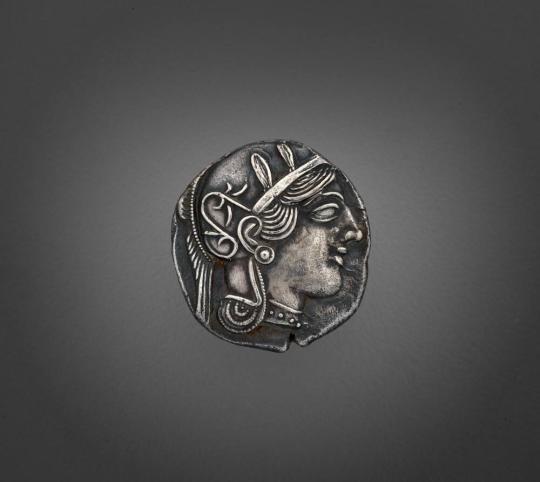
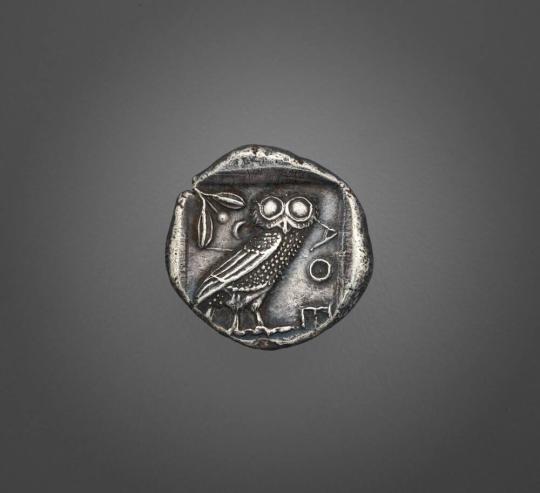
Athenian silver tetradrachm, Greece, 450-400 BC
from The Museum of Fine Arts, Houston
531 notes
·
View notes
Text
Yesterday I visited several museums and of course I couldn't help but take a lot of photos of Apollo ❤️❤️❤️

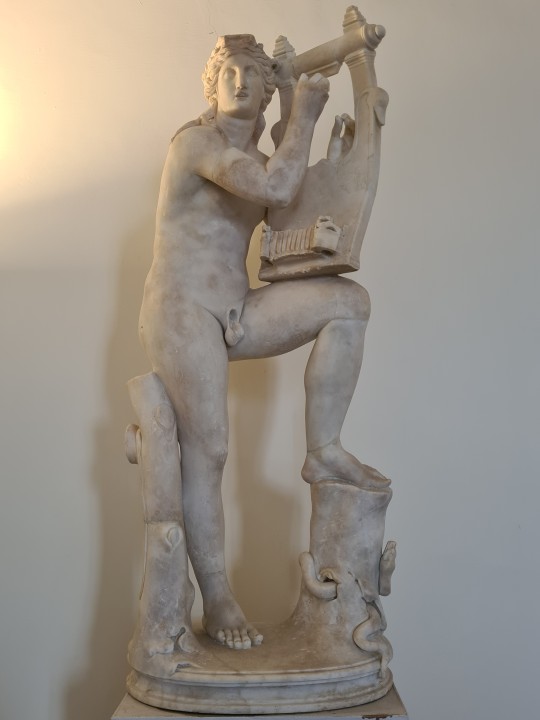





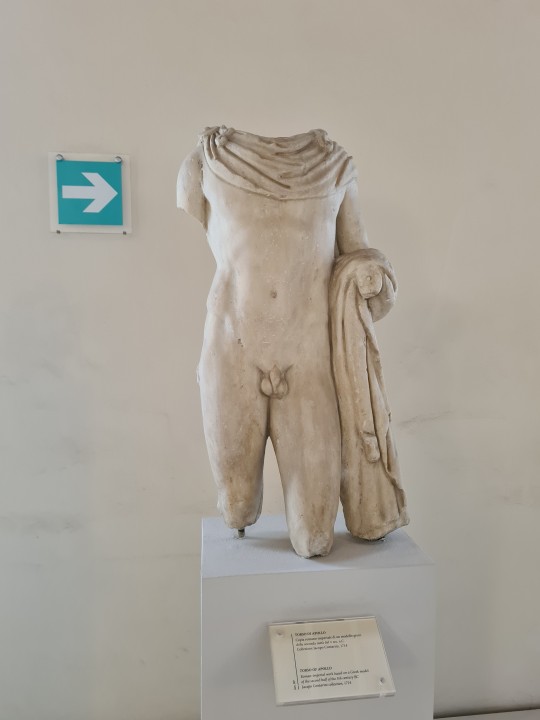

512 notes
·
View notes
Text

Versions of the color reconstruction of Apollo Belvedere done by Stephen Chappell, an American digital artist. These pieces were done for the exhibition Qui es-tu, Apollon? (Who are you, Apollo?) that is currently held by the Juliobona museum, Lillebonne, France.
This is my personal favorite part of the artist's explanation as to why he chose specific colors for this statue (beyond those derived through polychrome research):
As for the chlamys (cloak), I felt the color red was appropriate for this moment where Apollo is a death bringer, a warrior. This isn’t Apollo the kitharist, the musician; this isn’t Apollo the lover. This is the sun god with his corona of golden hair, loosing a golden arrow to kill the monstrous python. His cloak had to be red.
The exhibition will be open until November 30, 2023.
More on the process behind it and the exhibition: 🏺
188 notes
·
View notes
Text

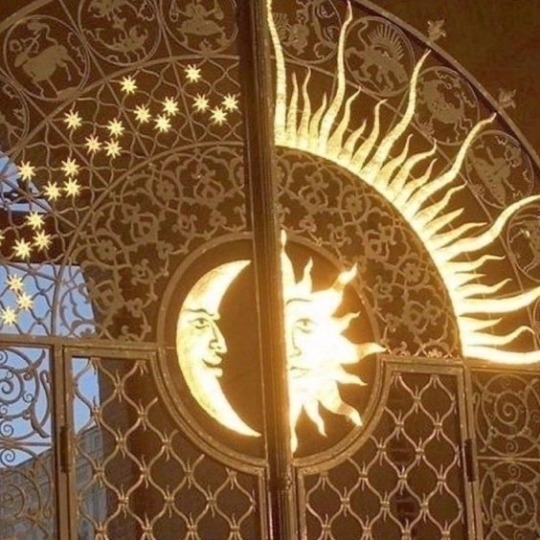
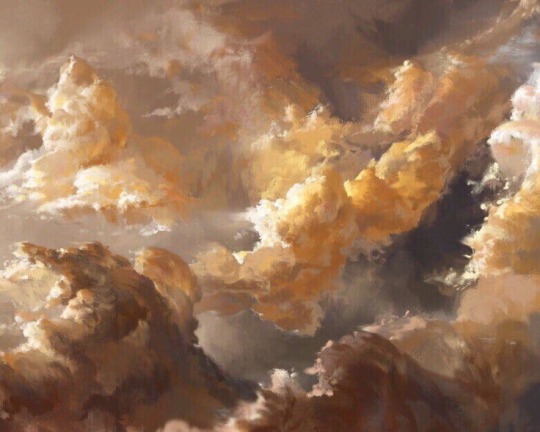
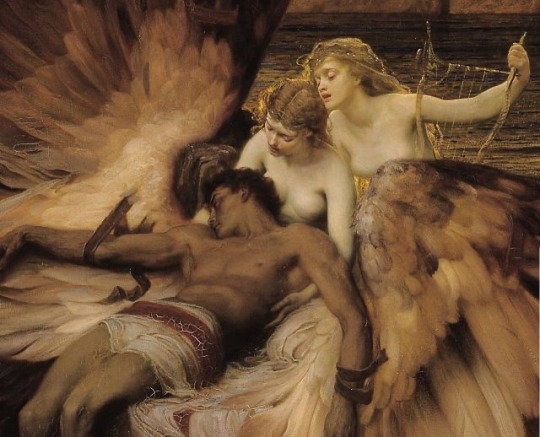
“If there’s one thing the gods love, it’s tragedy. With wings that burn and boys who fall.”


885 notes
·
View notes
Text
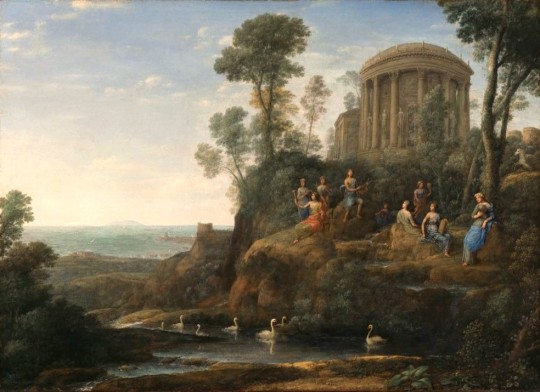
Apollo and the Muses on Mount Helion (Parnassus) Claude Lorrain, 1680
Photo source: 🏺
106 notes
·
View notes
Text
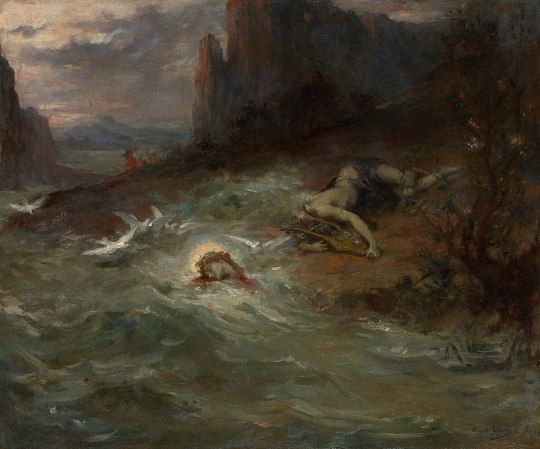
The Death of Orpheus by Henri-Léopold Lévy (1870)
1K notes
·
View notes
Text

"Lethe"
My painting for today's Bad Apple Artists auction themed "Elysium & the underworld" The auction kicks off today at 5 pm EST and runs until the same time on September 30th, over at the BA's Facebook page. Don't miss it!
Lethe is one of the five rivers of the Underworld in Greek mythology. her waters wipe away memories of those who drink or immerse themselves in it. In the afterlife, souls had to drink from it to forget their earthly lives and start anew, free from past memories.
I hope you enjoy the painting and the auction event! Stay tuned for more updates, and thank you for your support!
235 notes
·
View notes
Text
I believe that out of all the Greek gods, Hermes deserves a year-long vacation! He is the most overworked god on Olympus! Zeus' herald, the gods' messenger or even post-man, the one who brings the souls of the dead to the Underworld....
I mean... Give him some rest Zeus! His winged sandals are begging for some sand in the Bahamas!
186 notes
·
View notes
Text









greek mythology: mousai apollonides
mousai apollonides are three younger muses, daughters of the god apollo. they were honoured at the shrine of delphoi. their names nete, mese, and hypate are synonymous with those of the lowest, middle, and highest chords of a lyre.
463 notes
·
View notes
Text
it's always a joke i see passed around, but it's also based in a misconception of it, but roman and greek mythology are vastly different.
roman gods and goddesses were named after objects and did not possess a gender, whereas greek gods were decided by human characteristics and traits.
2. greek gods had heavy emphasis placed on their physical appearance, both beauty, and unsightliness. the description of their physical appearance would come from the myth itself. greek mythology would describe the gods and goddesses as having strong characteristics. these characteristics would have a direct impact on the physical appearance they were given, while roman gods were not described in such a way. roman gods had less emphasis put on their characteristics; therefore, their physical appearances were less strong if there was a physical depiction of them at all.
3. many myths are told differently like the trojan war and odysseus' return.
4. in greek mythology, mortal greek heroes were just as important as greek gods and goddesses. greek heroes often had roles that taught life lessons that were just as important as the myths that were told about greek gods and goddesses. greek mythology emphasized the importance of good deeds mortals performed on earth. roman mythology was different in this way. roman mythology did not put emphasis on the works of mortal heroes in regards to their life on earth because roman mythology believed in an afterlife (greeks did too but not in a strong way as romans did).
5. the greek culture viewed deities as an unattainable being. this means that mortals would never be able to reach deity status and have a place among the gods they worshipped. instead, they would have to do good works on earth to have the honor of the gods during their time on earth. roman culture was different. romans believed that mortals should try to aspire to be like the gods they worshipped. part of the reason is that they used the roman gods and goddesses as an inspiration to live life the right way. the other reason is that they believed in an afterlife that they would attain when their life on earth was over.
6. the gods had much different attributes differing from greek and roman; ares was the unpredictable spirit of war, and he wasn't the most popular god, but in rome, mars was hugely popular and was worshipped much more than the greek ares. demeter was the goddess of the harvest and grains, while ceres was those things as well plus art and culture.
7. in greek mythology, the afterlife does not hold much importance. in fact, gods and mortals are regularly snatched from the afterlife and brought in to the present showing no concern for the afterlife. the greek perspective is much more concerned with the physical life on earth as opposed to the afterlife. mortals are remembered and rewarded for their good deeds on earth. in contradiction, the romans did good deeds to secure their place in afterlife. they could even earn a place among the gods and through their life on earth strove towards this goal.
i know it's funny to be like "romans copied greeks," i don't view it as copying and pasting, i view it as the being inspired by greek gods and greek mythology and applying it to their own religions, and that's not a weird, uncommon thing. greeks also borrowed from other cultures to form their own gods. ancient greeks borrowed from minoans, mycenaeans, egyptians and phoenicians. THAT IS NOT A BAD THING! greek language also helped expand the italian language as well, they expanded their own knowledge with knowledge they learned from greeks, and other cultures they came across.
another complaint i see is "they conquered greece, so greeks didn't have a choice." i don't know how to tell you this in the most polite way, but conquering land in this time was gigantic and very common and normal! how do you think the mongolians became so powerful, they didn't do it through peaceful encounters. everybody did it, it's how culture spread so rapidly through the ancient world, not to mention through trade.
i know it's funny to say the italians copied greeks, but get over yourself, it's not funny nor is it correct.
292 notes
·
View notes


